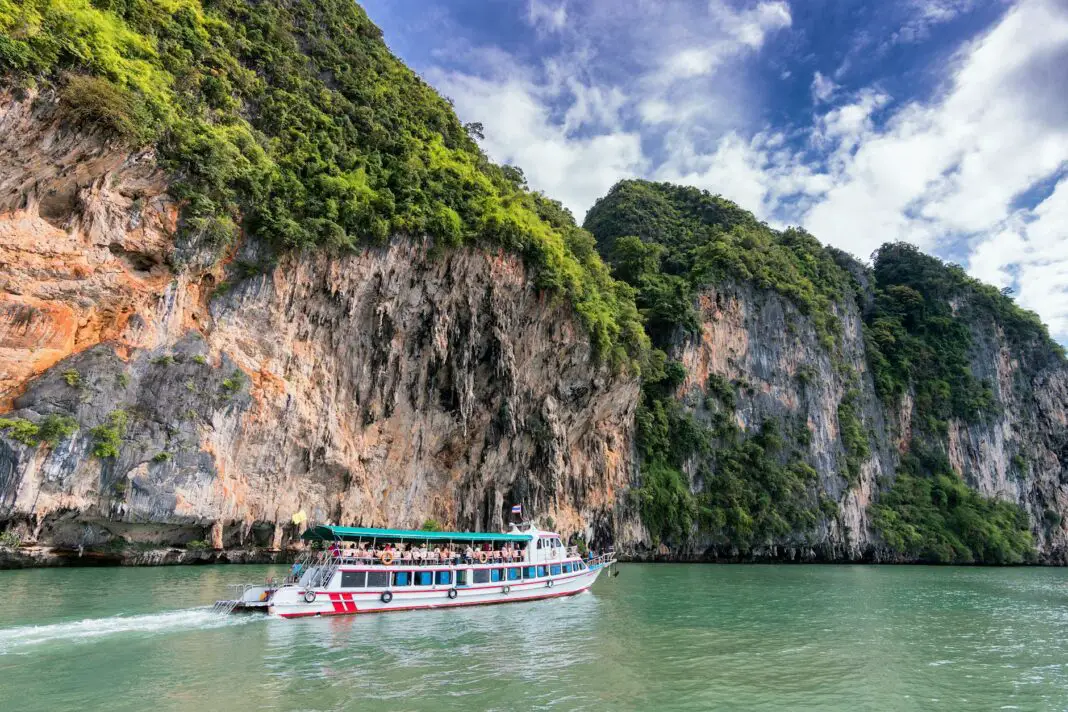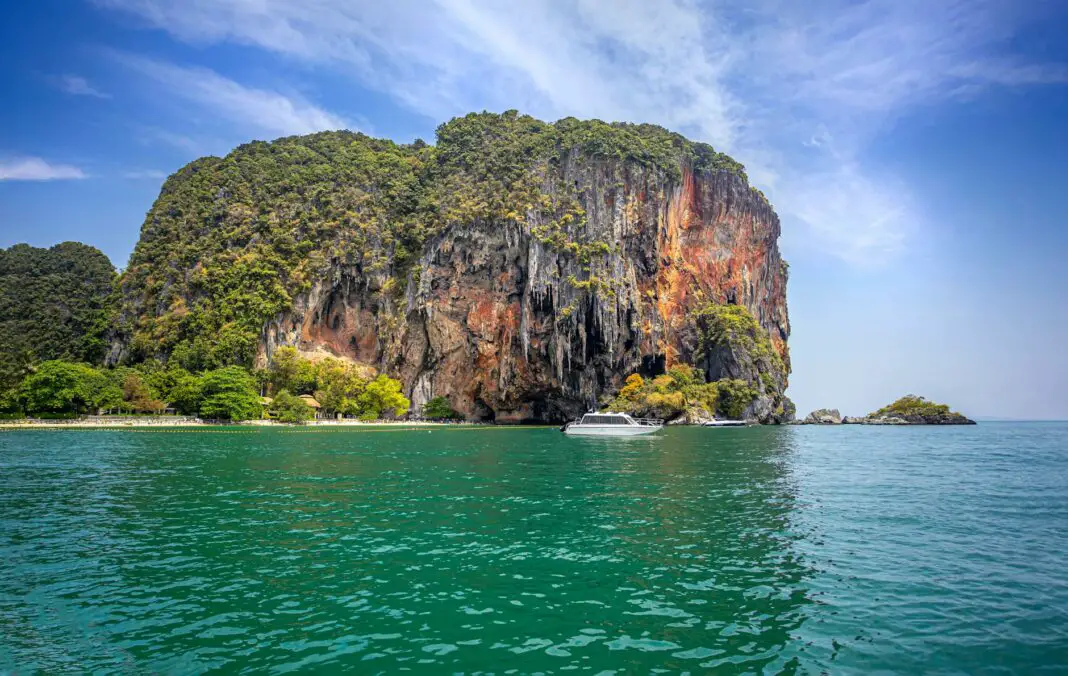Thailand, often hailed as a tropical paradise, is not just a dream vacation destination but a beacon for eco-tourists seeking to explore its lush landscapes, distinct culture, and rich wildlife. With stunning beaches, dense jungles, and vibrant marine life, the country’s commitment to sustainable tourism and conservation has made it a leading choice for those passionate about the environment. Dive into the breathtaking beauty and eco-conscious initiatives that make Thailand an ultimate paradise for eco-tourists. This thorough guide unravels everything you need to know for an unforgettable experience.
As you traverse the unique travel landscape of Thailand, the myriad possibilities for eco-friendly adventures await. From the glorious shores of Krabi to the serene mountains of Chiang Mai, discover the magic that Thailand holds for ecologically aware travelers. With a positive outlook, this blog delves into the environmentally rich activities, practices, and spectacular locations that will not only enhance your travel experience but also leave a minimal footprint on this beautiful land.
Table of Contents
- Exploring Nature Reserves
- Eco-Friendly Accommodations
- Embracing Local Cultures
- Engaging in Sustainable Activities
- Contributing to Wildlife Conservation
- Responsible Travel Tips
- The Final Thought
- FAQs
Exploring Nature Reserves
Thailand is home to an incredible array of nature reserves that preserve the country’s stunning natural beauty while providing refuge for diverse flora and fauna. These reserves, such as Khao Sok National Park and Doi Inthanon, are treasures for eco-tourists. They offer opportunities for jungle trekking, bird watching, and discovering unique ecosystems. Khao Sok, with its ancient rainforest, is often touted as one of the oldest in the world and holds a rich biodiversity, making it a must-visit. One can embrace the thrill of hiking through dense jungles while being enveloped by the sounds of nature, from chirping birds to cascading waterfalls. The blend of adventure and serenity ensures that every moment spent in these reserves is truly magical.
Moreover, many of these parks are actively involved in conservation efforts, allowing visitors to participate in activities like planting trees or engaging in cleanup drives. These experiences not only foster a deeper connection with nature but also contribute significantly to the preservation of these precious ecosystems. The commitment to maintain these environments is palpable, and travelers are sure to leave with lasting impressions and a heightened sense of responsibility toward the planet.
Eco-Friendly Accommodations
When traveling to Thailand, selecting eco-conscious accommodations is easy and rewarding. Numerous eco-lodges, treehouses, and boutique hotels focus on sustainability while offering unparalleled hospitality. Places like Eco Resort Chiang Mai not only provide comfortable lodging but strategically implement practices like rainwater harvesting and solar power usage. The warmth of Thai hospitality combined with eco-friendly initiatives allows travelers to enjoy luxurious stays without compromising their values.
Guests can unwind in settings surrounded by nature, often featuring locally sourced materials and energy-efficient designs. Additionally, many accommodations offer organic meals prepared with ingredients sourced from nearby markets or gardens, allowing visitors to experience authentic Thai cuisine while supporting local farmers. Opting for eco-friendly lodgings enhances the sense of community and environmental stewardship, ensuring your stay in Thailand is both enjoyable and responsible.
Embracing Local Cultures
A significant aspect of eco-tourism involves immersing oneself in local cultures, and Thailand excels in this arena. Engaging with local communities provides rich insights into traditional lifestyles, customs, and environmental practices that have been passed down through generations. Participating in cultural experiences, such as cooking classes or village tours, allows travelers to bond with locals while learning about sustainable living practices inherent to Thai culture. These interactions enrich the travel experience by fostering mutual respect and understanding between visitors and the community.
Additionally, many regions of Thailand engage in cultural preservation efforts, ensuring that local traditions persist alongside modern influences. By choosing to support these practices, eco-tourists contribute to the safeguarding of both the environment and local heritage. This cultural exchange not only broadens perspectives but also highlights the interconnectedness between nature and human experience in this stunning country.
Engaging in Sustainable Activities
Thailand offers a diverse range of sustainable activities for eco-conscious travelers eager to explore its scenic beauty. Whether kayaking through mangroves, snorkeling in protected marine areas, or participating in guided wildlife tours, every excursion presents opportunities to enjoy and protect the environment. Notably, Chiang Mai hosts various workshops for travelers to learn about organic farming, handicrafts, and traditional practices that prioritize sustainability.
In Krabi, eco-tours allow you to explore pristine islands while engaging in snorkeling activities that respect marine ecosystems. Interested travelers can join responsible diving schools that prioritize reef conservation. It’s essential to engage with tour operators that demonstrate a commitment to minimizing their environmental impact, ensuring that your experiences leave no trace. The immersive experiences coupled with a commitment to environmental responsibility enable eco-tourists to cherish Thailand’s beauty while contributing positively to its preservation.
Contributing to Wildlife Conservation
Thailand’s rich wildlife is at the heart of its eco-tourism appeal. In response to rising environmental issues, numerous organizations are dedicated to wildlife conservation efforts that educate and empower both locals and travelers. From visiting ethical elephant sanctuaries to participating in sea turtle rehabilitation programs, visitors can engage in impactful conservation endeavors. The opportunity to support these initiatives ensures that the delicate balance of Thailand’s ecosystems is preserved for future generations.
Additionally, many of these programs offer volunteering opportunities, allowing tourists to gain hands-on experience in wildlife preservation while forming bonds with these magnificent creatures. This engagement fosters not only a greater appreciation for Thailand’s biodiversity but also leaves participants with unforgettable memories. Partaking in these conservation activities allows travelers to support vital initiatives that keep wildlife thriving and ecosystems balanced.
Responsible Travel Tips
To ensure your trip to Thailand minimizes environmental impact, adopting responsible travel practices is crucial. Start by planning your itinerary to include tours and attractions that prioritize sustainability. Research travelers’ reviews and find support for local communities by purchasing souvenirs that are ethically produced. When dining, opt for restaurants that use organic or locally sourced ingredients to support the economy and sustainability efforts.
Furthermore, practice the principle of “leave no trace” during your adventures. Whether hiking, visiting beaches, or exploring markets, dispose of waste responsibly and leave natural sites as you found them. Use refillable water bottles to reduce plastic waste, and consider engaging in activities that focus on environmental education. Simple decisions like these can significantly contribute to the preservation of Thailand’s natural beauty for future travelers.
An Invigorating Journey Awaits
In embarking on a journey to Thailand, eco-tourists enter a realm that embodies the essence of responsible travel. From stunning landscapes and cultural richness to dedicated conservation efforts, this enchanting country presents endless opportunities for immersive experiences that respect and preserve nature. As you explore, remember that every action matters; embracing sustainable practices not only enriches your adventure but also safeguards the beauty of Thailand for generations to come.
FAQs
Is Thailand safe for eco-tourists?
Yes, Thailand is generally safe for eco-tourists. However, just like any other destination, travelers should always be aware of their surroundings, respect local customs, and practice safety precautions.
What are some eco-friendly activities in Thailand?
Some eco-friendly activities include wildlife rehabilitation volunteer programs, snorkeling in marine protected areas, jungle trekking tours with local guides, and visiting ethical elephant sanctuaries.
How can I support local economies while traveling in Thailand?
You can support local economies by staying in locally owned accommodations, dining at restaurants that use local ingredients, and purchasing handcrafted goods directly from artisans.
Are there many eco-friendly accommodations in Thailand?
Yes, there are numerous eco-friendly accommodations available, including eco-lodges, boutique hotels, and farm stays that focus on sustainability and conservation initiatives.
What is the best time to visit Thailand for eco-tourism?
The best time to visit Thailand for eco-tourism is during the cool and dry season, from November to February, when the weather is more pleasant for outdoor activities.
Image Credit: Pexels





